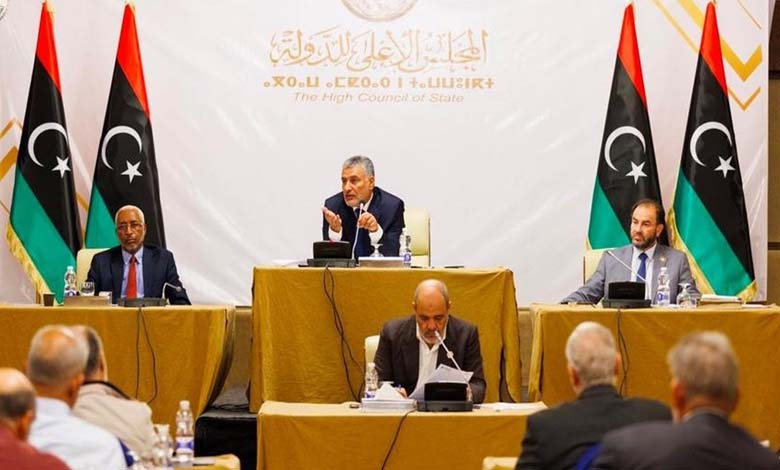The Libyan Presidencies Authority: A step toward unity or a new layer of political fragmentation?

In Libya’s tense and polarized political landscape, the scene has once again shifted after the announcement of the establishment of the “Higher Authority of Presidencies.”
Some interpret this move as an attempt to unify national decision-making, while others believe it may further complicate the political situation and deepen long-standing divisions.
-
Haftar Redraws the Parameters of the Libyan Solution on the Foundations of Sovereignty and National Consensus
-
Libyan Municipal Election Silence Shattered by Fires at Electoral Commission Offices
On Thursday, Tripoli hosted a meeting between the President of the High Council of State, Mohammed Takala, the President of the Presidential Council, Mohammed al-Menfi, Presidential Council member Abdullah al-Lafi, and the outgoing Prime Minister of the Government of National Unity, Abdelhamid Dbeibah. The discussions focused on ways to harmonize national decision-making and address political, economic and security challenges.
During the meeting, the creation of the “Higher Authority of Presidencies” was announced as a coordinating body bringing together the three institutions. Its stated objective is to establish a unified methodology for political decision-making and to coordinate the official discourse on issues related to Libyan sovereignty, civil peace and the national economy.
The three presidencies assert that the body was created in response to the demands of the current phase. They called on other sovereign institutions to join this initiative with the aim of strengthening stability and building a unified Libyan state capable of defending its sovereignty and resources.
-
Dbeibah blocks Western Libyan MPs from traveling to Benghazi to hinder budget approval
-
Tetteh set to present comprehensive roadmap on Libyan elections to the UN Security Council
Absence of the House of Representatives
The Libyan House of Representatives, backed by the Libyan National Army and the government based in eastern Libya, did not participate in the meeting. As of the time of writing, it has not issued any comment on the initiative.
A decision without legitimacy
Libyan academic and political analyst Mohammed Mtaired said that the decision lacks constitutional legitimacy. He stated: “Any decision taken by the Presidential Council without referring to the House of Representatives has no legal basis under the Skhirat Agreement. What has been announced today is nothing more than ink on paper, as it does not establish any new legitimate body nor relies on a legal framework permitting the creation of such an authority.”
-
Libyans Persist in Street Protests to Oust Dbeibeh — A Message to Tetteh
-
Salvation Friday: Libyans Hold Their Breath Amid Fears of Militia Chaos
Mtaired added that the Presidential Council, the Government of National Unity and the High Council of State form what he described as “parallel bodies,” arguing that they act in a manner that circumvents legitimate state institutions and dominate the political scene outside the legislative framework, while publicly promoting a narrative of civil governance inconsistent with their actions on the ground.
A factor of unity or division?
In the same context, Libyan activist and political analyst Wasim Tajeddin noted that the Government of National Unity had been mandated to hold elections in December 2021 but failed to fulfill its obligations. According to him, it has become part of the political divide instead of acting as a unifying government, representing only specific groups.
Tajeddin further stated that the government abandoned its promise not to allow its head to run in the elections, which obstructed the electoral process. He added that it supported armed groups claiming affiliation, only to later distance itself from them after they committed violations, illustrating major inconsistencies in governance.
-
Libyan Expert: Dbeibeh’s Move Is Too Late… Militias Have Become Partners in Power
-
Libyan Presidential Council Decrees: A Return Ticket to the Political Spotlight
Why now?
He questioned the timing of the initiative, noting that it comes as efforts are underway to form a unified national government. Meanwhile, the very entities that announced the authority are the same ones that contributed to the existing division, raising questions about the true aim behind the move.
Tajeddin suggested that the timing could be understood as an attempt at political repositioning and exerting pressure on ongoing processes aiming to establish a consensual government with clear responsibilities and oversight mechanisms.
-
The hopes of Libyans rest on a political breakthrough with elections next year
-
A Scheme That Made Them Outcasts: The Waning Influence of the Muslim Brotherhood in Libyan Municipal Elections
The UN plan
Although the UN mission announced on August 12 a roadmap to unify the executive authority and prepare for elections, progress on the ground remains limited due to deep divisions between political bodies and state institutions, split between east and west.
Observers argue that reconciliation efforts and the political process still require broader internal consensus, and that external support, regardless of its scale, cannot yield concrete results unless it is translated into clear and coordinated Libyan measures on the ground.












